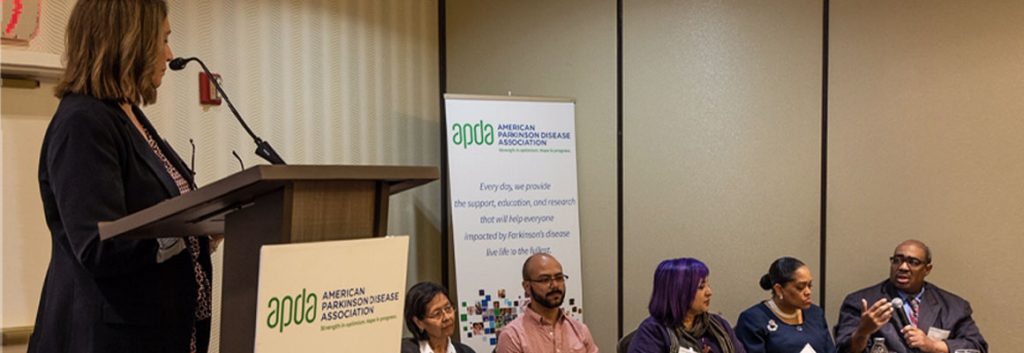
Diversity, Inclusion, and the Future of Parkinson’s
Helping EVERYONE with PD live life to the fullest
The vast majority of PD research that has been done thus far has not fully represented the people who live with this disease. In general PD research has predominantly reflected older, Caucasian men.
This lack of diversity is not just relevant to PD research. It also applies to access to medical care, programs and services. There are significant disparities when it comes to who is getting the proper care and support they need, and who isn’t.
In short, APDA wants to fix this. Our mission is to help everyone impacted by Parkinson’s disease live life to the fullest. Everyone. Are there cultural reasons why a person isn’t getting the care they need? Are there genetic differences that influence how PD, or PD treatments, affect certain ethnicities? We are uncovering the gaps so we can figure out how to improve our efforts to make sure PD research, support, and services become accessible to all people.
New grant to help make important changes
As a big first step, thanks to a grant from the prestigious Patient-Centered Outcomes Research Institute (PCORI), APDA convened the first-ever Diversity in Parkinson’s Disease Research Conference in May to address the unique and urgent needs surrounding PD in diverse and under-served communities.
At this groundbreaking conference, experts in the field presented the current facts concerning PD in diverse populations, with the goal of broadening diversity among the PD research that is being done today and in the future. The long-term objective is to understand the unanswered questions in the field of Diversity in PD Research, with the ultimate goal of fostering high-quality PD care for all.
Funding for future diversity research
Ultimately, APDA plans to create a specific grant that will be awarded each year to support research that is focused on closing the diversity gaps. As our work in this area continues, we look forward to sharing more progress and updates.
“I think we can do great things to make both our research and services more inclusive and accessible.” – Dr. David Standaert, Chair of Neurology, University of Alabama Birmingham, Conference Speaker
